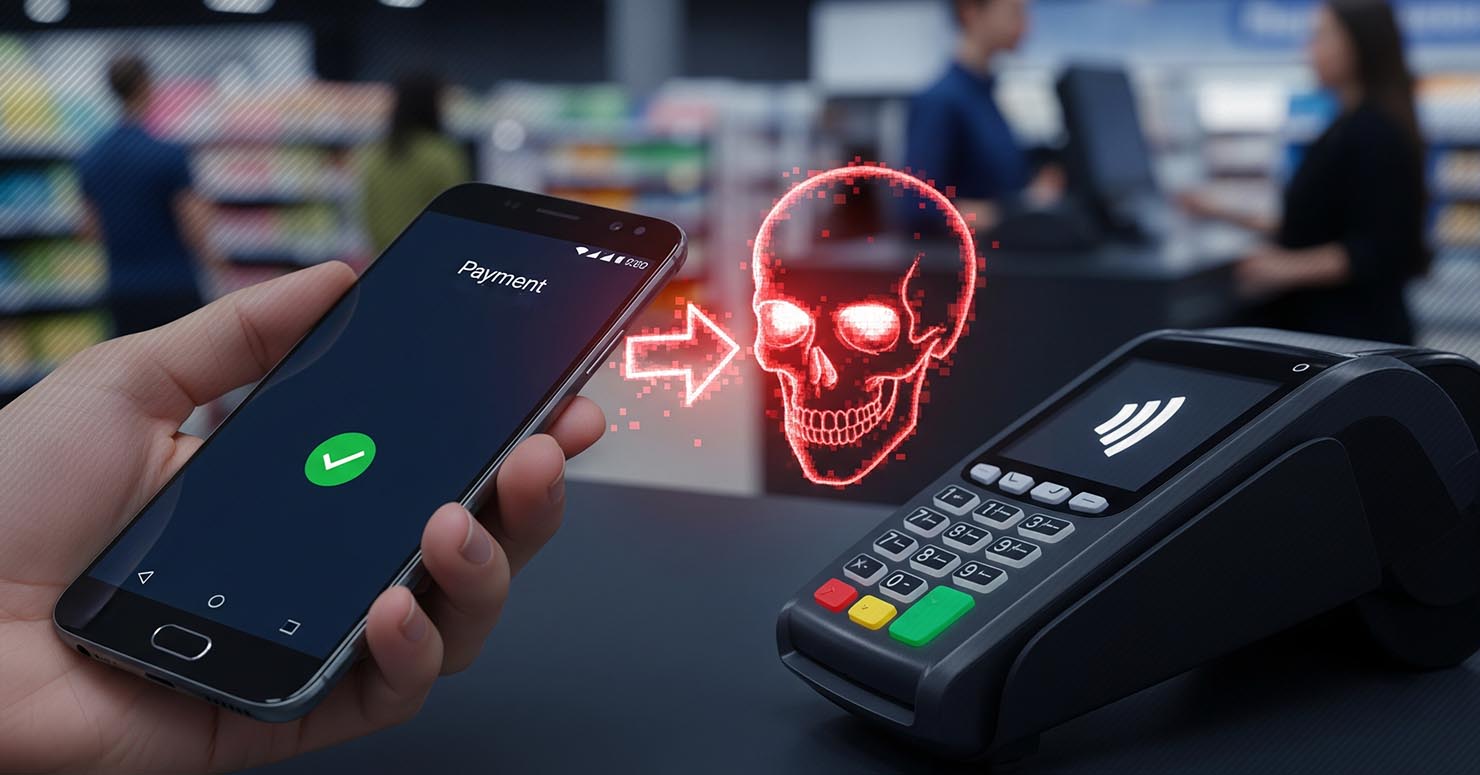The convenience of “tap-to-pay” has become a part of our daily lives, but a new threat is turning this convenience into a serious security risk. Cybersecurity researchers have discovered a sophisticated new malware targeting Android users, codenamed RATon. What makes this threat so alarming is its initial infection method: it can spread through Near Field Communication (NFC), the same technology used for contactless payments and data sharing.
This RATon Android malware is a Remote Access Trojan (RAT), a dangerous type of malicious software that gives attackers complete control over an infected device. The discovery of its ability to use NFC as an attack vector is a significant and worrying development.
This report by Francesca Ray breaks down how this new attack works, the dangers it poses, and the simple but crucial steps you can take to protect your device.
How the NFC Attack Works
The attack preys on a user’s trust in the simple act of tapping their phone. According to the report first published by The Hacker News, the infection can start from a compromised or malicious NFC tag.
- The Bait: An attacker could place a malicious NFC tag in a public place, disguised as an advertisement, a smart poster, or even on a restaurant menu.
- The Tap: A user taps their Android phone on the tag, expecting to open a website or a menu.
- The Silent Download: The NFC tag triggers a command that forces the phone’s browser to silently download a malicious application (the
.apkfile) in the background. - The Deceptive Prompt: The user is then shown a deceptive prompt, perhaps disguised as a system update or an app installation from a trusted source, tricking them into granting the necessary permissions to install the app.
Once installed, the RATon Android malware activates and gives the attacker remote control.
The Dangers of a Remote Access Trojan (RAT)
Once the RATon Android malware is on your phone, the attacker essentially has a backdoor into your digital life. As a Remote Access Trojan, it can be commanded to perform a wide range of malicious actions, including:
- Stealing Personal Data: Accessing your contacts, messages, photos, and files.
- Recording Audio and Video: Using your phone’s microphone and camera to spy on you.
- Logging Keystrokes: Capturing everything you type, including passwords, bank details, and private conversations.
- Financial Theft: Intercepting one-time passwords (OTPs) from banking apps.
This level of access makes the RATon Android malware an incredibly dangerous threat. It’s a powerful reminder of the importance of robust Cyber Security practices for all your personal devices.
How to Protect Yourself from the RATon Android Malware
While this new threat is sophisticated, protecting yourself comes down to a few fundamental security habits.
- Turn Off NFC When Not in Use: This is the simplest and most effective defense. If your NFC is off, you cannot be targeted by this attack. You can easily toggle NFC on and off from your phone’s Quick Settings panel.
- Never Install Apps from Unknown Sources: Android has a built-in protection that prevents installations from outside the Google Play Store. Never disable this feature (“Install unknown apps”). Only download apps from official sources.
- Be Skeptical of Taps: Be cautious about tapping your phone on random NFC tags or QR codes in public places. If you do tap one, pay close attention to what website it opens or what it prompts you to do.
- Scrutinize Permissions: When installing any new app, carefully review the permissions it asks for. If a simple app is asking for access to your microphone, camera, and contacts, that’s a major red flag.
By being mindful of how you use your phone’s features, you can significantly reduce your risk of falling victim to the RATon Android malware and other threats to your gadgets.
Frequently Asked Questions (FAQ)
1. What is RATon Android malware?
RATon Android malware is a Remote Access Trojan that gives attackers full control over an infected Android phone. Its new and notable feature is the ability to spread through malicious NFC tags.
2. What is NFC?
NFC (Near Field Communication) is a short-range wireless technology that allows two devices to communicate when they are brought very close together (usually within a few centimeters). It is the technology behind contactless payments like Google Pay and Samsung Pay.
3. Is NFC dangerous?
NFC technology itself is not inherently dangerous. However, like any technology, it can be exploited by malicious actors. The risk comes from interacting with unknown or untrusted NFC tags that could trigger malicious actions.
4. How do I know if I’m infected?
Signs of a RAT infection can include unusual battery drain, unexpected data usage, your phone’s camera or microphone activating on its own, and the appearance of apps you don’t remember installing. If you suspect an infection, running a reputable mobile antivirus scan is a good first step.
